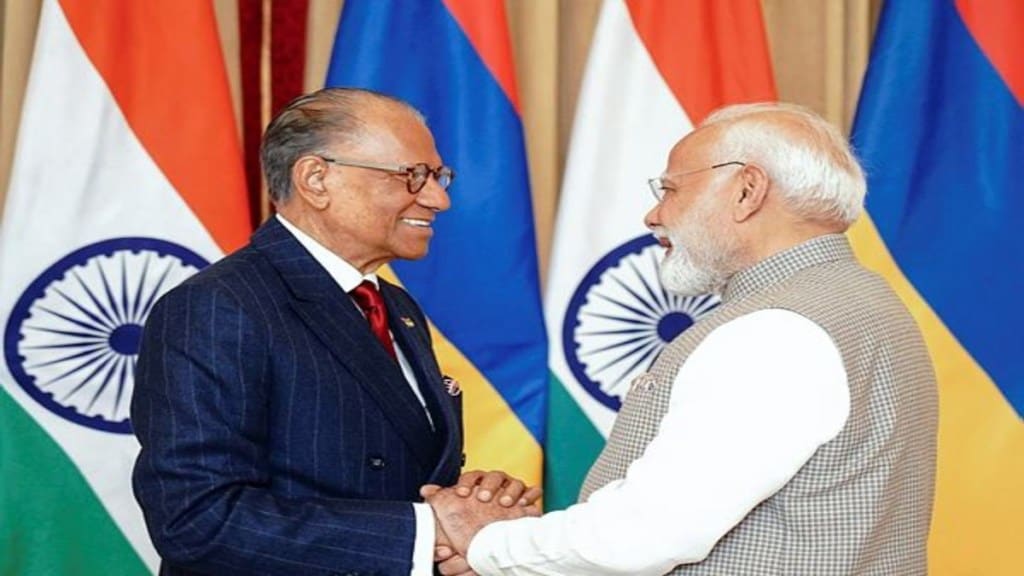Prime Minister Narendra Modi on Thursday announced that India and Mauritius would work towards enabling bilateral trade in local currencies, following wide-ranging talks with Mauritian Prime Minister Navinchandra Ramgoolam. The meeting, held in Varanasi, underscored the civilisational bonds and cultural depth that shape the unique India-Mauritius relationship.
Welcoming his counterpart in his parliamentary constituency, Modi described the talks as “not just a formal meeting but a spiritual meeting,” emphasising that India and Mauritius are “not just partners but one family.” He reiterated that Mauritius remains an integral pillar of India’s ‘Neighbourhood First’ policy and vision Mahasagar.
Vision for the Indian Ocean
Highlighting the strategic importance of the region, Modi underlined that “a free, open, secure, stable and prosperous Indian Ocean is a shared priority of both India and Mauritius.” India, he said, is committed to strengthening the maritime security capacity of Mauritius, reaffirming its role as a “first responder and a net security provider” in the Indian Ocean region.
The two leaders also reviewed progress under the “Enhanced Strategic Partnership,” upgraded during Modi’s visit to Mauritius in March when he attended the island nation’s National Day celebrations.
Chagos Islands agreement hailed as ‘historic victory’
Mr Modi congratulated Ramgoolam and the people of Mauritius on the conclusion of the Chagos agreement, which he described as a “historic victory” for the country’s sovereignty.
In May, the United Kingdom agreed to return sovereignty of the Chagos Islands, including the atoll of Diego Garcia, to Mauritius after more than five decades of control. The agreement ensures that while the UK will continue to manage security at Diego Garcia, sovereignty over the islands will rest with Mauritius.
“India has always supported decolonisation and the full recognition of Mauritius’s sovereignty,” PM Modi declared, adding that India has “stood firmly” with Mauritius in this regard.
In his remarks, the Indian prime minister invoked the shared cultural heritage between the two nations. Referring to Varanasi as a “symbol of Indian civilisation and the soul of culture,” he drew parallels with Mauritius, where Indian traditions have been preserved and nurtured for centuries.
“Like the continuous flow of the Ganga in Kashi, the steady flow of Indian culture has enriched Mauritius,” Modi said, stressing the enduring spiritual and cultural connection between the two societies.
Mr Ramgoolam’s choice of Varanasi for his first overseas bilateral visit since returning to office was seen as deeply symbolic, underscoring the religious and cultural bonds that underpin bilateral ties.
The visit also involved the exchange of several documents aimed at enhancing cooperation across diverse sectors. Earlier in the day, Foreign Secretary Vikram Misri called on Ramgoolam, reaffirming the multifaceted partnership between the two countries.
The week-long state visit, which runs until 16 September, includes trips to Ayodhya and Tirupati, highlighting the cultural and spiritual resonance of the visit.


